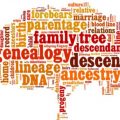Question
Dear Gramps,
I am a woman of middle age, have a very busy and demanding family, and two jobs. I also teach in the Mormon Church. We have been commanded to do genealogy and temple work for our kindred dead. I love genealogy and the work, but it seems that the older I get, the less time I have to do what the Lord requires. With so much going on in this latter day and a lack of finances and time, how can we, people in my situation, do what we are commanded to do? How do we deal with the guilt of not fulfilling our duties and keeping the covenants? I am told that I must do this work because I am a convert to the church, and my ancestors are waiting so they can progress. Do I take it on faith, not work, and do what I am commanded to do? Please help me find some peace over this. Thank you and God Bless You.
Patty
Answer
Dear Patty,
Genealogy is not merely a hobby; it is a spiritual obligation for members of The Church of Jesus Christ of Latter-day Saints. The doctrine emphasizes that family history work is essential for the salvation of our ancestors who did not have the opportunity to receive the gospel during their earthly lives. As stated in Doctrine and Covenants 138:33, “These were taught faith in God, repentance from sin, vicarious baptism for the remission of sins, the gift of the Holy Ghost by the laying on of hands.”
Family history work is deeply rooted in the belief that our ancestors are waiting for their temple ordinances to be performed. This work is often referred to as the “Spirit of Elijah,” which is described in Malachi 4:6:
And he shall turn the heart of the fathers to the children, and the heart of the children to their fathers.
Engaging in genealogy not only helps our ancestors but also strengthens our connection to them, fostering a sense of belonging and purpose.
Elder David A. Bednar emphasized the importance of this work, stating, “As you respond in faith to this invitation, your hearts shall turn to the fathers.” This turning of hearts is a profound spiritual experience that can deepen our faith and understanding of the eternal nature of families.
Participating in genealogy and temple work brings numerous blessings, both for the living and the deceased. Elder Henry B. Eyring noted, “The names which will be so difficult to find are of real people to whom you owe your existence in this world and whom you will meet again in the spirit world. Engaging in this work can lead to personal growth, increased spirituality, and a greater appreciation for the sacrifices made by our ancestors.
Moreover, the act of searching for and performing ordinances for our ancestors can provide a sense of fulfillment and joy. As we engage in this sacred work, we often find that our own burdens are lightened, and we are filled with a sense of purpose and connection to our heritage.
For individuals who find themselves overwhelmed by the demands of family and work, it is essential to establish a balance that allows for meaningful participation in genealogy without adding undue stress. Here are some practical strategies to help manage time effectively while fulfilling these spiritual obligations.
Prioritize your responsibilities
One of the first steps in managing a busy life is to prioritize your responsibilities. Make a list of all your commitments, including work, family, church duties, and personal time. Once you have a clear picture of your obligations, assess which tasks are most important and which can be adjusted or postponed. Virginia H. Pearce wisely stated, “You cannot be everything to everyone all the time.” By focusing on what truly matters, you can create space for genealogy work without feeling overwhelmed.
Set Realistic Goals
Setting achievable goals is crucial for maintaining motivation and reducing feelings of guilt. Instead of aiming to complete extensive genealogy research in a short time, consider setting smaller, more manageable goals. For example, you might dedicate just 15 minutes a week to family history research or commit to indexing a few records each month. These small efforts can accumulate over time, leading to significant progress without overwhelming your schedule.
Utilize Technology and Resources
In today’s digital age, technology can be a powerful ally in genealogy work. Websites like FamilySearch.org and Ancestry.com offer vast databases of records and resources that can streamline your research process. Additionally, consider using mobile apps for genealogy, which allow you to work on your family history during short breaks or while waiting in line. The convenience of technology can help you integrate genealogy into your daily routine more seamlessly.
Involve Your Family
Engaging your family in genealogy work can make it a more enjoyable and less burdensome task. Involve your children or spouse in research, indexing, or even visiting family history centers together. This not only strengthens family bonds but also creates a shared sense of purpose. As you work together, you can share stories and memories, making the experience more meaningful for everyone involved.
Embrace Flexibility
Life is unpredictable, and sometimes our best-laid plans may need to be adjusted. Embrace flexibility in your approach to genealogy work. If a week becomes particularly hectic, allow yourself to take a break without guilt. Remember that the Lord understands your circumstances and desires your heart more than your perfection in fulfilling every task. As stated in Doctrine and Covenants 10:4, “Do not run faster or labor more than you have strength.”
As you navigate the challenges of balancing family life and spiritual obligations, it is essential to find peace in your journey. Remember that your worth is not defined by the amount of genealogy work you complete but by your sincere efforts and intentions. The Lord knows your heart and desires your growth and happiness.
Sometimes, it can be easy to feel guilty for not doing enough. However, it is important to trust in the Lord’s timing. He understands your circumstances and will provide opportunities for you to fulfill your genealogy duties when the time is right. As you continue to seek His guidance and support, you may find that your ability to engage in this work increases as your life circumstances change.
Don’t hesitate to reach out for support from your church community. Many members are passionate about genealogy and can offer assistance, resources, or even companionship in your efforts. Sharing your experiences and challenges with others can provide encouragement and motivation, reminding you that you are not alone in your journey.
Gramps







